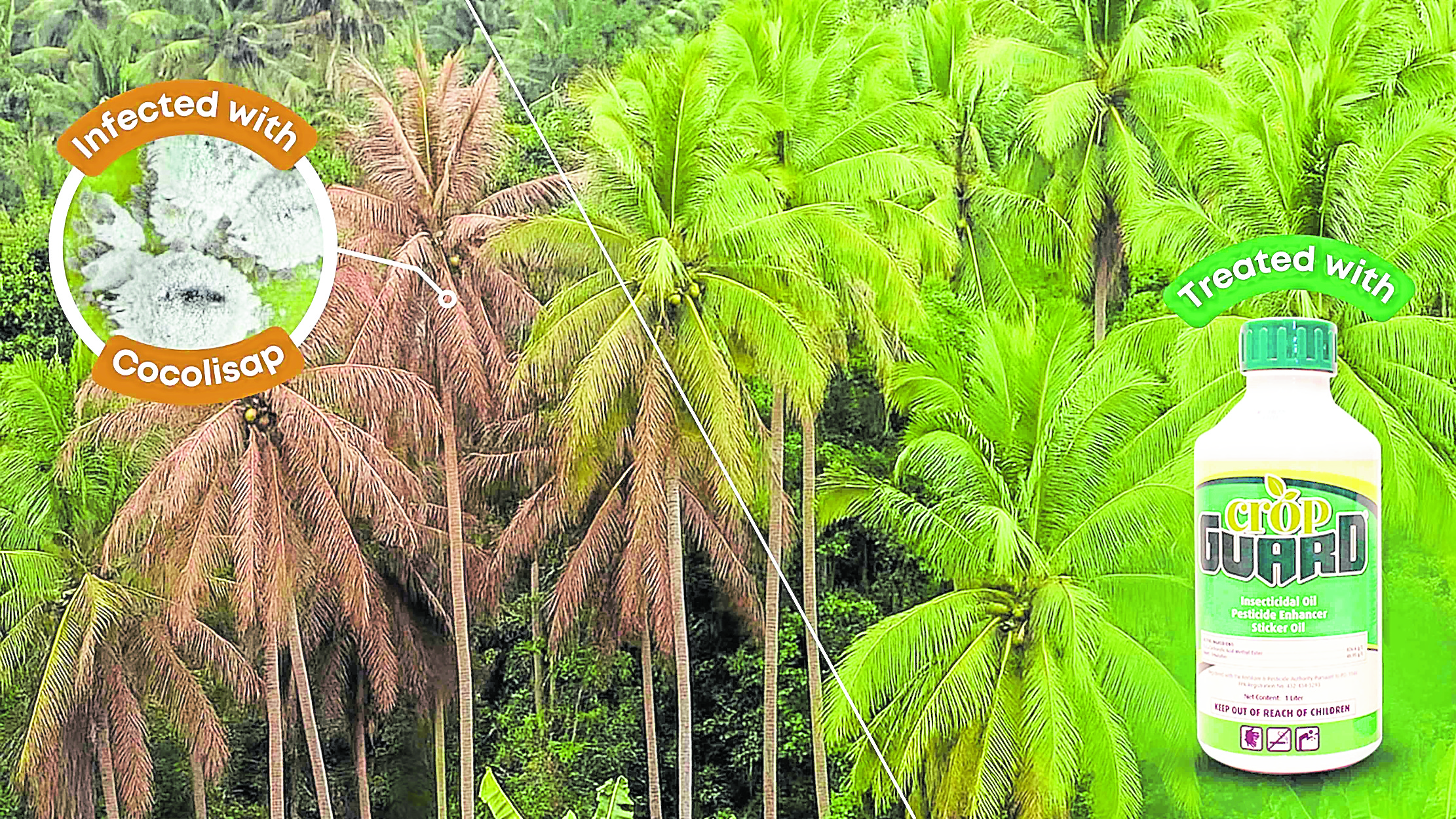Chemrez gets green light for coconut pesticide
MANILA, Philippines — Chemrez Technologies Inc. has secured approval from the Philippine Coconut Authority (PCA) for its touted organic pesticide to combat “cocolisap” or pests that can cause serious damage to coconut trees.
In a statement on Wednesday, the subsidiary of Lao family-led D&L Industries Inc. said its organic-based spray called CropGuard is a non-invasive and residue-free alternative to safeguard both crops and plantations against coconut scale insect (CSI) infestations.
The company said that CropGuard is a primary treatment option to effectively prevent the spread of CSI, thus reducing the need for severe interventions. It also serves as an insect repellent that discourages feeding and egg deposition of insects.
Based on tests conducted with the PCA and the University of the Philippines Los Baños, it is recommended to spray CropGuard twice in coconut plantations, 15 days apart.
“Crucially, the use of trunk-injected synthetic pesticides may invalidate the organic certification of coconut farms,” Chemrez said.
“This not only disqualifies farmers from accessing the premium organic market but also jeopardizes livelihoods and disrupts entire rural economies that depend on organic coconut production for income, sustenance, and export revenue,” it added.
READ: ‘Cocolisap’ victims ask gov’t for P25,000 cash aid
Farm damage
The PCA reported last month that the Philippine coconut industry had incurred about P200 million in damage due to the CSI infestation.
The agency has yet to provide an updated report, but it said earlier that CSI had affected 3,600 coconut farmers and 516,962 coconut trees in various regions.
READ: ‘Cocolisap’ infects coconut trees; damage estimated at P200M
These are Calabarzon, Bicol, Western Visayas, Eastern Visayas, Zamboanga Peninsula, Northern Mindanao, Caraga, and Bangsamoro Autonomous Region in Muslim Mindanao.
Despite this, the PCA said the infection rate represents a small fraction of the 345 million coconut trees nationwide.
To date, more than 3.5 million Filipinos rely on coconut farming as their primary source of livelihood./dda

